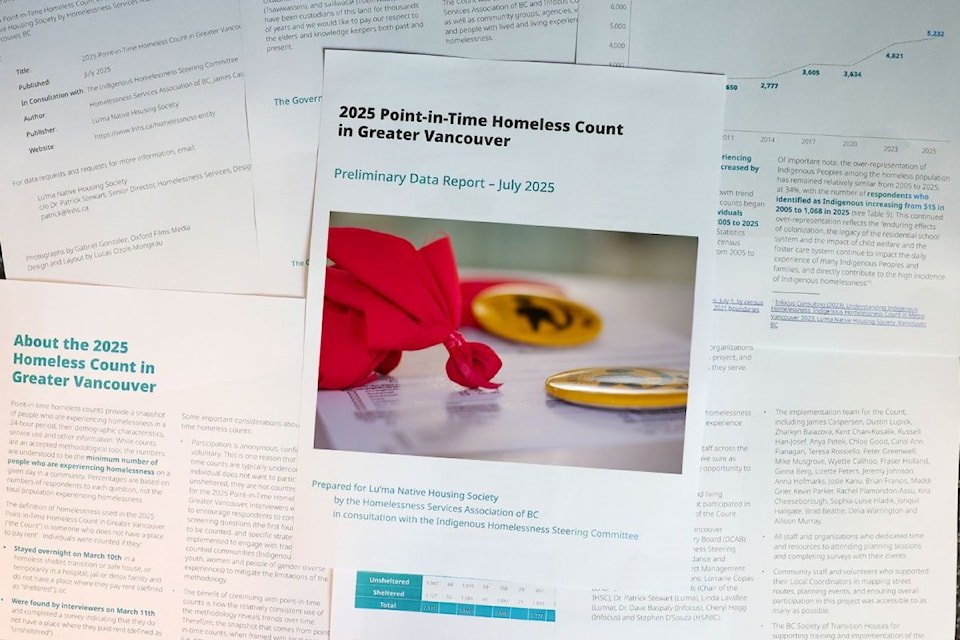A new report reveals that homelessness in Delta has surged by 70 percent between 2023 and 2025. The findings come from the 2025 Point-in-Time Homeless Count for Greater Vancouver, which also shows increases in nearby areas like White Rock and Surrey.
Delta recorded the largest rise, with the number of people experiencing homelessness growing from 44 in 2023 to 75 in 2025. White Rock’s homelessness increased by 53 percent, going from 17 people in 2023 to 26 in 2025. Surrey saw a smaller rise of two percent, with 1,060 people counted in 2023 and 1,078 in 2025.
The count was carried out in March by volunteers across 16 municipalities in Greater Vancouver. The Homelessness Services Association of BC and Infocus Consulting organized the effort, funded by the federal government’s Homelessness Strategy and the Lu’ma Native Housing Society.
Homelessness in Greater Vancouver is now at its highest level ever recorded. The report highlights a nine percent overall increase in homelessness since 2023, with a notable rise in unsheltered homelessness—people living outdoors without shelter.
One in five people counted were aged 55 or older, while the majority, 72 percent, were between 25 and 54 years old. In terms of ethnicity, 60 percent identified as white, and nine percent as Black.
A key point in the report is the steady over-representation of Indigenous Peoples among those experiencing homelessness. Indigenous individuals made up 34 percent of the homeless population from 2005 to 2025. The number identifying as Indigenous rose from 515 in 2005 to 1,068 in 2025.
More Indigenous people experiencing homelessness were unsheltered, with 54 percent living outdoors compared to 42 percent of non-Indigenous respondents.
David Wells, chair of the Indigenous Homelessness Steering Committee for Greater Vancouver, stated that while these counts provide vital insight, they have limits in fully capturing Indigenous homelessness.
The report clarifies that the numbers represent the minimum count of people experiencing homelessness on a single day in the community.
Lorraine Copas, chair of the Greater Vancouver Community Advisory Board for Reaching Home, pointed out that homelessness is growing faster than the region’s population, showing a clear need for more shelter spaces.
Volunteers interviewed people without fixed addresses or places to pay rent, covering areas from West Vancouver to Langley.
Those counted as sheltered on the night of March 10 included individuals staying in homeless shelters, transition houses, safe houses, or temporarily in hospitals or jails. People without a fixed rent payment were classified as unsheltered.
Unsheltered individuals were found staying in encampments, alleys, doorways, parks, vehicles, couch surfing, or temporary hotel stays.
The report showed a sharp increase in unsheltered homelessness from 2023 to 2025: Delta had a 115 percent rise, White Rock 64 percent, and Surrey 46 percent.
The total number of unsheltered homeless people grew by 30 percent across Greater Vancouver, from 1,461 in 2023 to 1,893 in 2025. The share of unsheltered homeless also rose from 30 percent in 2023 to 36 percent in 2025.
Among sheltered homeless individuals, White Rock had the largest increase of 33 percent since 2023. Delta’s sheltered numbers stayed the same, while Surrey saw a drop of 120 people.
This latest count underscores the growing challenges faced by the region in addressing homelessness, especially the rising numbers of people living without shelter.

